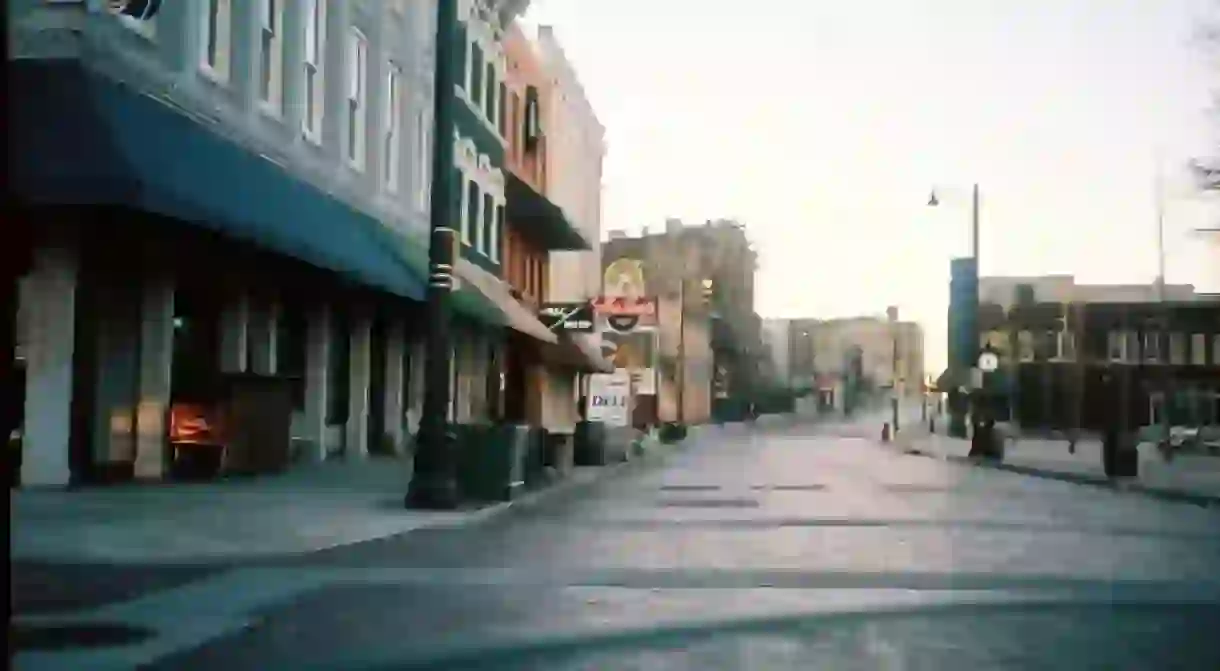Pilgrimage to Music City

A Southern state bordered by the Mississippi River and the Appalachian mountains, Tennessee, with its Dixieland heritage, has been a mecca for musical hopefuls and enthusiasts over the last century. Kate Gliven takes us to Tennessee to tell the tale of two cities that together are the beating heart of Dixieland. Read on to explore the music of Nashville and Memphis.

Following the Second World War, the locus of musical innovation in America shifted from the traditions of New York City’s Tin Pan Alley and Los Angeles’ Hollywood to new contender-cities for a national sound. Tennessee had not just one but two locations vying for a share of the action. First, Memphis grew as the destination of choice for blues musicians in the early twentieth century when musicians including W.C. Handy and later B.B. King travelled up from the Mississippi Delta to perform on Beale Street. Producer Sam Philips established Sun Records, which as well as producing records in a tradition of rhythm and blues, provided a segue into early rock and roll with the signing of the latterly-named ‘Million Dollar Quartet’. Jerry Lee Lewis, Carl Perkins, Johnny Cash and Elvis Presley’s infamous yet impromptu jam session at a Sun Records studio melded rock and roll with country gospel to create a rockabilly style.
Nashville, often nicknamed ‘Music City’, became Tennessee’s second city of high musical status when it supplied its own unique stage for country music. The ‘Grand Ole Opry’, a weekly country music concert, has been playing in Nashville since 1925. Between 1943 and 1974, the ‘Grand Ole Opry’ popularised country music through broadcasts of its shows on local and later national radio stations from its historic home at Ryman Auditorium. Now in its new home at The Grand Ole Opry House, it still attracts hundreds of spectators each week.

Aspirational visitors, looking for success in the music business or the opportunity to share a symbolic stage with past music stars, have always gravitated towards Nashville. The media hoopla and celebrity culture that surrounds such events were the targets of Robert Altman’s darkly satirical film Nashville that holds condescension for people who desperately seek fame. But musical comedy of the 1990s, The Thing Called Love, which makes a reference to the eponymous Johnny Cash song, gives a more hopeful representation in its portrayal of country singer-songwriters that travel from cities around the US to queue up weekly for an audition at Nashville’s Bluebird Cafe.
The Tennessee musical scene has also spawned a variety of biopics by the film industry about artists who have performed at the ‘Grand Ole Opry’ from Loretta Lynn to Jerry Lee Lewis. Among the most effective and compelling of these is the story of Johnny Cash; the story of the Man in Black continues to be shaped by films such as Walk The Line and has given rise to other works of art, such as the community-produced pieces for The Johnny Cash Project that has been growing since April 2010. The life of Cash embodies Tennessee’s tale of two cities of music, from his musical break in Memphis to his television show in Nashville, and his Tennessee roots continue to be of interest on a global scale that has been growing since April 2010. The life of Cash embodies Tennessee’s tale of two cities of music, from his musical break in Memphis to his television show in Nashville, and his Tennessee roots continue to be of interest on a global scale.
By Kate Gliven













